Graduate Fellowships
Help us recruit outstanding graduate student researchers to the University of Washington!
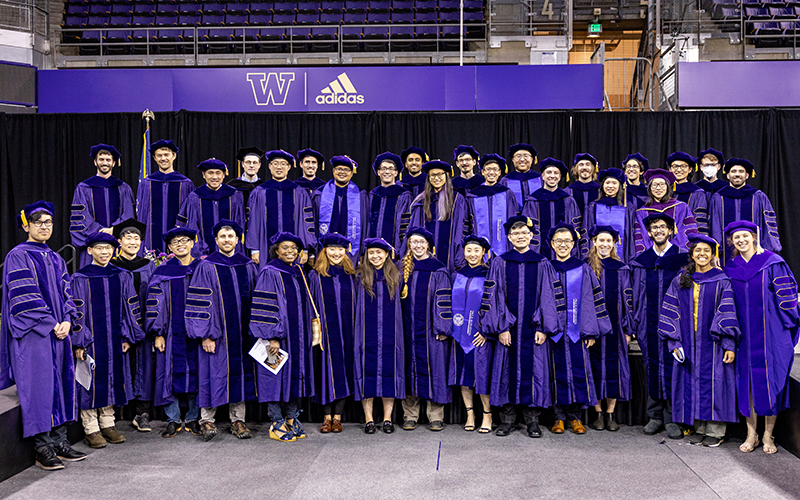
The competition for graduate students in Computer Science & Engineering is intense. Our success in attracting the best and brightest to launch their research careers at the University of Washington depends on several factors: the renown of our faculty; the outcomes for our recent students; the “atmosphere” of our program (our reputation for investing in and valuing all of our students); our facilities (the Allen and Gates Centers); and the financial support that we are able to offer incoming students.
Teaching Assistantships, which are funded by the university, and Research Assistantships, which are funded by federal and industrial research grants and contracts, are the most common forms of graduate student support. However, fellowships are vital for enabling us to compete for the very top students.
A fellowship provides an entering graduate student with independence and flexibility to focus on their studies, rather than having to immediately serve as a Teaching Assistant or commit themselves to a specific research project. This flexibility is important; teaching experience has a far greater impact in the latter years of a graduate student’s journey, and many entering students need time to explore the various subfields to find the best match.
Years ago, Stanford raised a $300 million endowment for graduate student fellowships, which gave them an enormous competitive advantage in recruiting. Our supporters’ generosity increases our own competitiveness for attracting some of the most promising students here to the Allen School.
Allen School Named Fellowships
Corin Anderson Endowed Fellowship
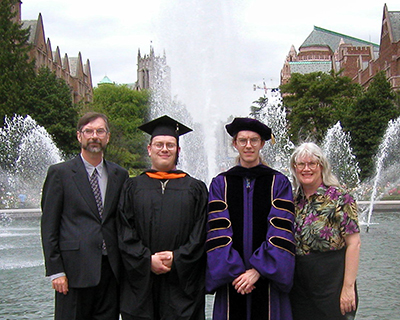
Corin Anderson attended the University of Washington from 1993 through 2003. He earned a Bachelors degree in Computer Science & Math, and a Masters and Ph.D. in Computer Science. As an undergrad he was joined at the UW by his brother, Casey, and mother, Cathy, who earned Bachelors degrees in Compuer Engineering and Technical Communication. Then, while Corin completed his Ph.D. in CSE at UW, Casey also earned a Masters through the CSE Professional Masters Program. Sharing the college experience with family happened for the Andersons even before they attended UW. Corin, Casey, and Cathy all attended Highline Community College and graduated with Associates in Arts degree on the same night (and one day before Corin graduated from Foster High School in Tukwila, WA). Corin’s father, Craig, rounded out the Anderson family support network.
Corin always felt that the culture of the CSE department was one of its best features, and he did what he could to contribute to it. Corin was known for decorating his office, especially around holidays, and for always having snacks available for visitors. Corin carried on these traditions after graduation when he joined Google in Mountain View, CA, in 2002. Google values and benefits from these traditions, and Corin has greatly enjoyed his tenure there, including with many CSE alumni.
Gaetano Borriello Endowed Fellowship for Change
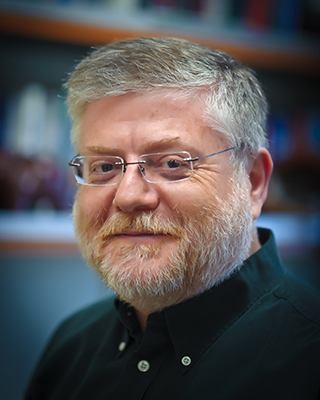
The Gaetano Borriello Endowed Fellowship for Change, established in 2015, has two purposes: to enable UW Computer Science & Engineering to support students whose work is focused on exploring how technology can improve the lives of underserved populations, and to honor the scholarship of Gaetano Borriello, his leadership in teaching and research, and his contributions to UW CSE.
Gaetano joined the UW CSE faculty in 1988, following receipt of his Ph.D. in Computer Science from UC Berkeley. He had previously received an M.S. in EE from Stanford University, and served as a member of the research staff at the Xerox Palo Alto Research Center for eight years. From 2001-2003, on leave from UW, he founded Intel Research Seattle, which quickly became one of the premier research labs for work in ubiquitous computing.
Gaetano’s career began in the areas of integrated circuits, circuit synthesis, reconfigurable hardware, and embedded system development tools. He transitioned into ubiquitous computing, and as director of Intel Research Seattle, he launched projects in elder care and in location-aware computing. More recently, his focus has been applying mobile technologies to the problems of public health and development in low-resource settings. His group’s open-source mobile data collection tools, Open Data Kit, are in use on six continents in programs ranging across public health, documentation of human rights violations, and environmental monitoring.
Gaetano is a Fellow of the ACM and IEEE, a Fulbright Scholar, and a recipient of the UW CSE Undergraduate Teaching Award, the UW Distinguished Teaching Award, and the UW Marsha L. Landolt Distinguished Graduate Mentor Award.
Gaetano exemplifies why we are here: to provide an extraordinary educational experience for our students, in which they discover, pursue, and achieve their potential; to conduct leading-edge research, but in the context of education rather than purely for its own sake; ultimately, to make the world a better place through the impact of our teaching, research, and mentoring. He is an inspiration to all of us.
We invite you to join in honoring Gaetano by supporting the Gaetano Borriello Endowed Fellowship for Change. Contributions may be made online. For stock transfers and pledges, please contact Ed Lazowska (lazowska at cs.washington.edu).
Wilma Bradley Endowed Fellowship
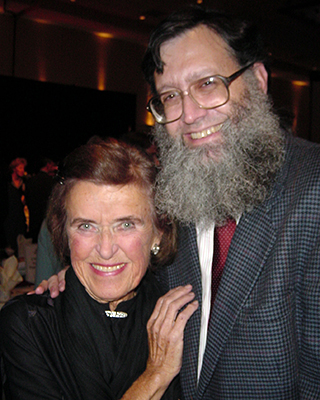
Wilma Bradley was a special friend of the University of Washington. Wilma first became interested in Computer Science & Engineering after attending the UW Annual Faculty Lecture given by CSE Professor Ed Lazowska in 1996. After several years of supporting CSE Ph.D. students (and regularly attending their thesis defenses!), she established this fellowship in 2007.
Wilma was married to Warren Francis “Frank” Bradley. Frank led a varied career in the U.S. Army for over 20 years. He was a member of the general staff, serving in Korea, and participated as an Army observer with the U.S. Navy expedition to the South Pole in preparation for the Geophysical Year. The Bradleys met in Europe when both were working for NATO, she as an interpreter for the American forces in Germany, and he as a liaison officer. Upon his retirement in Seattle in 1964, the Bradleys became involved in real estate investment and property management. Frank Bradley passed away in 1966.
Wilma continued to actively manage her investments, maintaining an avid interest in the stock market, and these efforts made this and other gifts possible. In addition, she volunteered for UNICEF, was a patron of the arts, was involved in several local clubs, and continued a keen pursuit of knowledge through attendance at many University functions. She maintained an active interest in the teaching and research of the Paul G. Allen School of Computer Science & Engineering along with its students and faculty.
Wilma passed away on October 22, 2022.
CSE Educator’s Endowed Fellowship
This endowment, established in 1995, is the result of contributions from Hellmut Golde and other faculty plus matching funds from the UW Fellowship Fund and the Microsoft Challenge.
Jeff Dean – Heidi Hopper Endowed Regental Fellowship
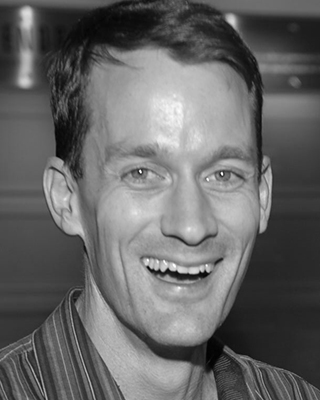
The fellowship was established by UW CSE Ph.D. alumnus Jeff Dean, who worked for Digital Equipment Corporation for almost three years before becoming an early employee at Google, Inc. in 1999. Jeff wrote significant portions of Google’s crawling, indexing, and query serving systems, built systems infrastructure for large-scale storage and computation, and generally had a great time working on difficult problems with great colleagues to produce software used by hundreds of millions of people.
Heidi Hopper received her Ph.D. in Organization Behavior and Human Resources Management at the UW in 1997.
Denice Dee Denton Scholars Endowment
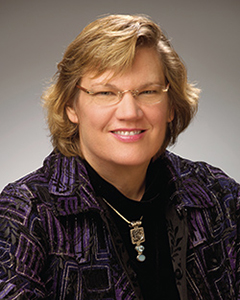
In 1990, under the leadership of Professor Richard Ladner, UW Computer Science & Engineering established an endowment to help support our commitment to a diverse student population. Fifteen years later, thanks to the generosity of faculty, staff, students, friends, and alumni who share this commitment, the endowment had grown to more than a quarter of a million dollars.
In June 2006, CSE named the endowment to honor Denice Dee Denton, who served as Dean of the University of Washington College of Engineering from 1996-2005. Denice was an inspirational leader and a strong voice for social justice, diversity, and excellence. She possessed enormous measures of vision, courage, integrity, and backbone.
Denice left the University of Washington in 2005 to become Chancellor (president) of the University of California at Santa Cruz. She passed away under tragic circumstances on June 24, 2006. The Denice Dee Denton Scholars in UW Computer Science & Engineering will serve as a lasting reminder of Denice: her character and the principles for which she stood.
Anne Dinning – Michael Wolf Endowed Regental Fellowship
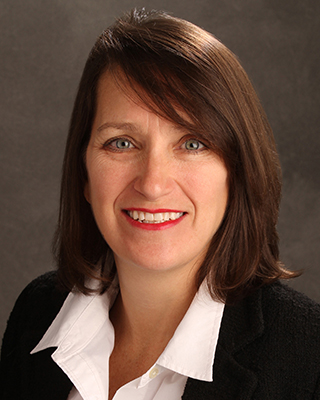
This fellowship was established by Allen School bachelor’s alumna Anne Dinning and her husband Michael Wolf. After attending UW, Anne received her Ph.D. in computer science from NYU and then became an early employee of the D. E. Shaw group, a specialized investment and technology development firm whose activities center on various aspects of the intersection between technology and finance.
Michael Wolf received his B.S. in Physics and Applied Math from U.C. Berkeley, followed by a Ph.D. in computer science from Stanford University. He joined the D.E. Shaw group and later worked at various firms in the financial and technology industries. His 1991 paper on compilation for improved data locality was included in a 2004 “Best Of” retrospective of the ACM SIGPLAN Conference on Programming Language Design and Implementation (PLDI). Dr. Wolf is currently a full-time stay-at-home parent.
European Informatics Endowed Student Award
Martin Bickeböller’s family is filled with University of Washington graduates. In 2011, the chair of the Department of Computer Science, Hank Levy, challenged Martin to give back to other students the opportunities and education his family had received over the years. Martin came in 1982 as a Fulbright student (Physics Ph.D., ’86), his sister Heike (Statistics Ph.D., ’93) received graduate assistantships, and his daughter Marisa (CSE B.S., 2010) full tuition waivers as a Washington Scholar. His second daughter, Linnea, received her B.S. in History in 2012, and there are many more graduates and also faculty in the family.
Martin was raised in Germany and continues to be active in the international community at the UW, in particular supporting the Foundation for International Understanding through Students (FIUTS) by annually hosting new students, including several CSE students. He has become convinced that it is critical for our world to grow together as people. In order to do that, an exchange of people and ideas must occur across the continents. Students are searching for meaning and ideas in the world and need to be encouraged to make the journey across the ocean. By providing an incentive for the brightest European students to experience the University of Washington and the Pacific Northwest, the hope is that they will go forward after their education to further understanding among the nations.
Faithful Steward Endowed Fellowship
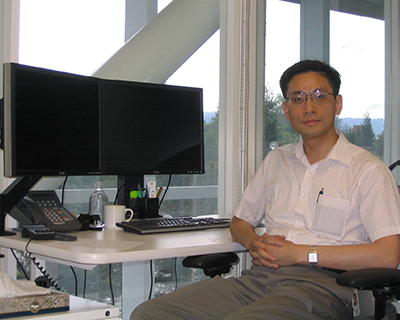
Shun-Tak Leung graduated with a Ph.D. in Computer Science from the UW in 1996. Throughout his journey from Hong Kong to the UW to Silicon Valley, he always remembers his advisor, John Zahorjan, for his advice, support and constant encouragement, and Ed Lazowska for his contagious enthusiasm and help during his early career. Shun-Tak Leung wishes to give back in some small way for so much that he has received. He hopes beneficiaries of this fellowship will in time become benefactors and stay faithful to their stewardship of their own talents and opportunities.
Marilyn Fries Endowed Regental Fellowship
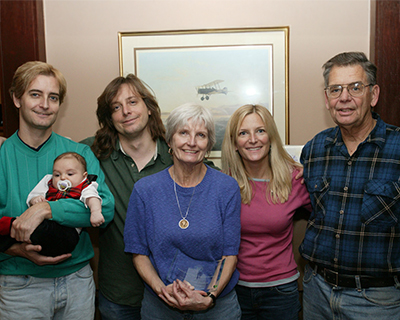
The Fries Fellowship was established by Marilyn’s children Bob, Ed, and Karen. Marilyn, post-child-rearing, was an early graduate program alumna of UW CSE, whose career included stints at DECwest Engineering and Microsoft. Bob, Ed, and Karen all spent their careers at Microsoft.
Glerum Family Endowed Fellowship
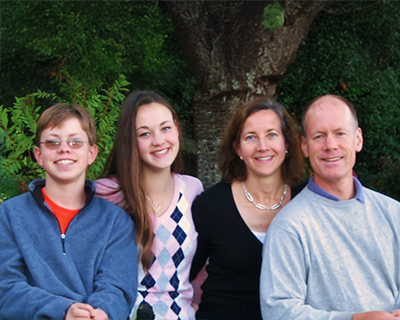
This endowment was established in 2008 to help graduate students with financial need in Computer Science & Engineering (CSE) fund the cost of attending the University of Washington. The fund is named for the donors, Melissa and Kirk Glerum.
Melissa received her bachelors degree in computer science from Brown University. Kirk received his bachelors degree in computer science from the University of Washington. Their educations at the UW prepared them for highly successful careers at Microsoft. Through the Glerum Family Endowed Fellowship in Computer Science & Engineering, they hope to make educational opportunity available to future generations of students.
Hacherl Endowed Fellowship
Don and Cindy Hacherl both did their graduate work at the University of Washington. Don’s studies were in the Computer Science & Engineering department. After leaving the UW, Don spent the next two decades at Microsoft where most of his time was spent designing and implementing distributed computing systems. This fellowship was prompted by Don’s interest in supporting students who will contribute to the continued success of the software industry in our region.
Gary Kildall Endowed Fellowship
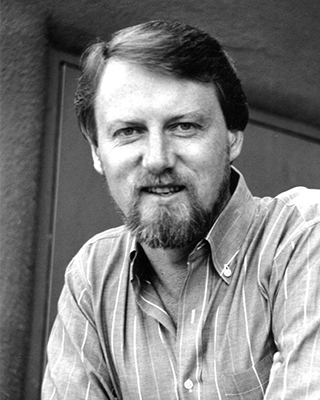
As a student at the University of Washington, Gary Kildall received three degrees: a Bachelor’s degree in Mathematics in 1967, a Master’s degree in Computer Science in 1968, and a Ph.D. in Computer Science in 1972. He was hired as an assistant professor at the Naval Postgraduate School in Monterey, and later joined Intel Corporation to write programming tools for the Intel 4004 microprocesor.
A pioneer in the computer revolution, Gary developed CP/M, which became the dominant microcomputer operating system of the 1970s. He was one of the first people to recognize that even the early, simple microprocessors could support a complete minicomputer-style operating system, and he created an editor, assembler, linker, and loader, along with the first file system to use floppy disks as a general-purpose storage medium. As personal computers began to be used, he saw that their true potential would be in connectivity, so he developed extensions to CP/M that let computers share files and peripheral devices over a network.
Gary’s company, Digital Research, Inc., introduced operating systems with windowing capability, preemptive multitasking, and menu-driven user interfaces years before Microsoft developed Windows. He also created the first practical open-system architecture, which allowed operating systems and application programs to be independent of the specific machines on which they ran. A firm believer that life and work should be fun, Gary also developed an early computer-based arcade game as well as precursors to current interactive multimedia.
Gary passed away in 1994, at the age of 52.
Dora Zee Ling Endowed Fellowship
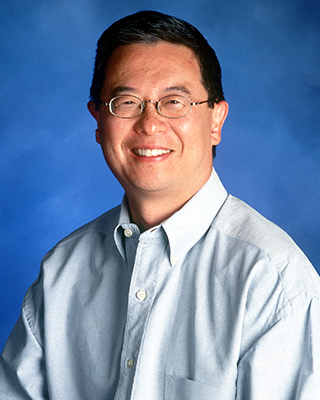
This fellowship was established by Dan Ling, Microsoft’s Corporate Vice President for Research, and his partner Lee Obrzut, to honor Dan’s birth mother, Dora Zee Ling. Dora Zee Ling was born in Shanghai, China in 1924. She was intellectually brilliant, strong-willed, and determined at a time and in a culture that discouraged such traits in women. She pursued the rigorous education and training to become a physician like her father, even though she suffered from a serious congenital heart defect. She loved children and was dedicated to improving their well-being by doing research on tuberculosis. Dora Zee Ling had an inquiring mind with wide-ranging interests from art and literature to the sciences; she was always concerned about social issues. She died prematurely and unexpectedly of a brain tumor at the age of 39. She was greatly loved by her son and husband.
Daniel T. Ling and Lee J. Obrzut are life partners. Dan came to the Seattle area to help found Microsoft Research. He was one of the leaders who transformed the new laboratory into a world-renowned research institution for computer science. Lee founded a psychological counseling service that helped disadvantaged children in Northern Arizona. He then held senior accounting positions for the State of Arizona.
Both Lee and Dan believe strongly in the value of education and particularly want to help students achieve their educational objectives. They are delighted to be able to fund this fellowship because they recognize the important contributions that Computer Science & Engineering at the University of Washington makes to the discipline of computer science and the intellectual and economic vitality of the Seattle area.
Microsoft Endowed Fellowship
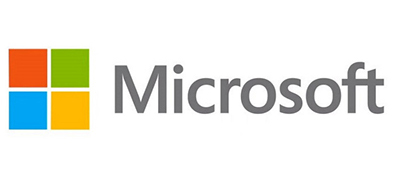
For many decades Microsoft has been the strongest corporate supporter of Computer Science & Engineering at the University of Washington. As the capstone gift of the Campaign for Washington — the UW’s fundraising campaign of the late 1980s and early 1990s — Microsoft committed $1,000,000 to Computer Science & Engineering. These funds were used to establish the Microsoft Graduate Fellowship, the Microsoft Professorship, the Microsoft Undergraduate Scholarship, and the Microsoft Endowed Fund.
David Notkin Endowed Fellowship
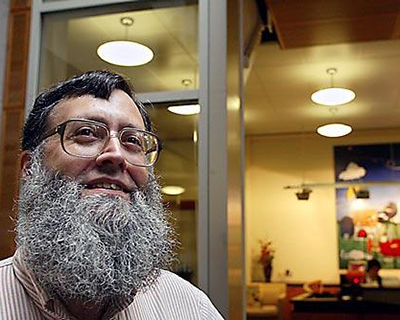
The David Notkin Endowed Graduate Fellowship in Computer Science & Engineering, established in 2013, has two purposes: to enable UW Computer Science & Engineering to recruit the strongest graduate students in the nation and the world, and to honor the scholarship of David Notkin, his leadership in the field of computer science, and his contributions to UW CSE.
David received his Sc.B. from Brown University in 1977 and his Ph.D. from Carnegie Mellon University in 1984, when he joined the University of Washington faculty. A world leader in software engineering, David served as CSE chair from 2001-06, and was honored with the Boeing Professorship, the Frank and Wilma Bradley Endowed Professorship, and the Frank and Wilma Bradley Endowed Chair.
An extraordinary mentor, David received the University of Washington Distinguished Graduate Mentor Award in 2000. His philosophy about working with students follows that of his own adviser, Nico Habermann: “Focus on the students, since graduating great students means you’ll produce great research, while focusing on the research may or may not produce great students.”
We invite you to join in honoring David by supporting the David Notkin Endowed Graduate Fellowship in Computer Science & Engineering. Contributions may be made online here. For stock transfers and pledges, please contact Ed Lazowska (lazowska at cs.washington.edu).
Pastry-Powered T(o)uring Machine Endowed Fellowship
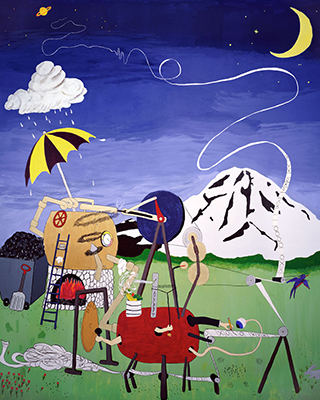
Lauren Bricker (M.S., ’93, Ph.D., ’98), Ruben Ortega (M.S., ’94), and Paul Franklin (M.S., ’98) are among a dozen University of Washington Computer Science & Engineering graduate students and alumni who formed a team to ride in the 1995 Seattle-to-Portland (STP) bicycle ride. The team named was inspired by Computer Science & Engineering’s Steam-powered Turing Machine mural, painted 30 years ago by a group of graduate students and recreated in the Allen Center.
Many team members continue riding together even as they pedaled off campus and into careers and family life. Ortega, an expert in search technology, worked for Amazon.com and other start ups for over 10 years and now is an independent software consultant. Bricker consulted on user interface architecture and taught at Lakeside School before rejoining her alma mater as teaching faculty. Franklin is a software developer at Amazon.com.
The three contributed to the Allen Center capital campaign and organized a consortium through the bike team to fund this Students First fellowship endowment. “We got a great education at the UW, which opened the doors to great jobs, so we wanted to give back to CSE,” said Ortega. “Creating an endowed fellowship offered a terrific opportunity to do that and the timing was right for all of us,” added Franklin.
Weil Family Endowed Fellowship
This fellowship was established by UW alumni Marsha and Dave Weil. After earning a master’s degree in Computer Science & Engineering, Dave spent four years as a software developer at The Boeing Company. In 1980 he joined Microsoft Corp., where he spent 17 years as a software developer, program manager, and software development manager for a variety of products including Visual C/C++ and Microsoft Works. He retired in 1997.
Wissner-Slivka Endowed Fellowship
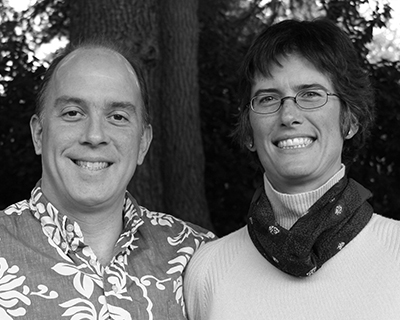
Lisa Wissner-Slivka earned a B.A. in Computer Studies from Northwestern University in 1985 and an M.B.A. from the University of Washington in 1988. She worked at Microsoft as a program manager and product manager on programming language tools and electronic mail applications for six years. She currently serves on the boards of the Bellevue Schools Foundation, Social Venture Partners, Kindering Center, and the Puget Sound Susan G. Komen Foundation. Her past board service includes Bush School, Seattle Children’s Theatre, and the Overlake Hospital Foundation, and she was co-chair of the Kindering Center capital campaign that completed successfully in 2001. She is in the process of training for her eleventh marathon.
Benjamin W. Slivka grew up in the Mount Baker neighborhood of Seattle and graduated from Garfield High School. He met Lisa at Northwestern University, where he earned B.S. degrees in Computer Science and Applied Mathematics in 1982, followed by a M.S. degree in Computer Science in 1985. He spent 14 years at Microsoft working on OS/2, MS_DOS, Windows, Java, and MSN.
Perhaps Benjamin’s most visible project at Microsoft was starting the Internet Explorer team and leading it through the release of IE 3.0. After a brief stint at Amazon.com, he retired in 2000 to focus on his family and philanthropy. He co-founded DreamBox Learning in 2006, and DreamBox Learning K-2 Math — a web-based math game for kids 4-8 years old — launched in early 2009 to rave reviews. He is a Trustee of Northwestern University and a director of the Garfield High School Foundation. He dabbles in digital photography and maintains a handful of web sites.
The purpose of this endowment is to help graduate students with financial need pursue degrees in Computer Science & Engineering at the University of Washington.
How it works
An endowment of approximately $750,000 is required to fully fund an academic year graduate fellowship. However, smaller amounts still have a tremendous impact! The principal is invested in UW’s Consolidated Endowment Fund, which has consistently performed in the top quartile of endowments nationally. Roughly 4% is available for expenditure every year; additional gains are reinvested to keep pace with inflation.
Interested in learning more?
Contact Ed Lazowska, Professor, and Bill & Melinda Gates Chair emeritus, in the Paul G. Allen School, lazowska (at) cs.washington.edu, or Marzette Mondin, Senior Director of Advancement in the Paul G. Allen School, marz (at) uw.edu.
Lifetime endowment gifts of $25,000 and above are permanently recognized on the Endowment Wall in the Allen Center atrium.
Named funds are available for gifts of $50,000 and above. Appropriate recognition, designed in consultation with each donor, is part of each gift that creates a named fund.
